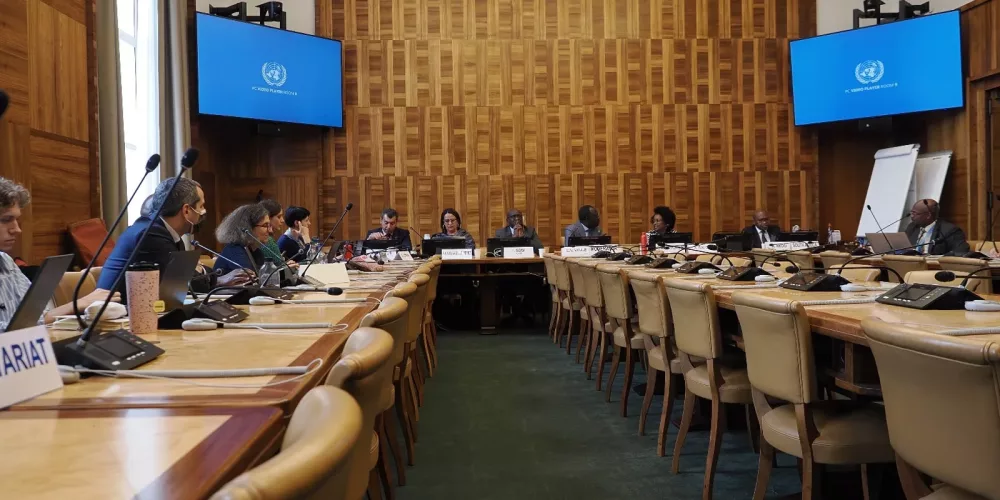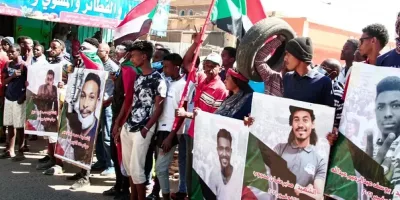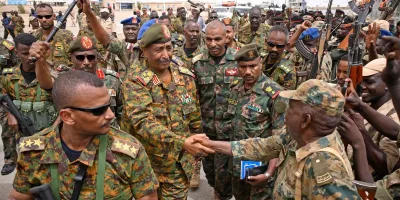Press Release
Ahmed Mefreh, Executive Director of CFJ participated in a side event held on the sidelines of the 57th session of the Human Rights Council in Geneva. The event, titled “Moving Forward with the Addis Ababa Roadmap,” highlighted the importance of cooperation between the UN Human Rights Council’s special procedures and the African Commission on Human and Peoples’ Rights (ACHPR). The event was organized under the auspices of the UN Working Group on Enforced or Involuntary Disappearances.
In his speech at the event, Mefreh emphasized the importance of cooperation and partnership between the ACHPR and the UN Special Rapporteur, explaining that this partnership is not merely a formal framework between two international institutions; it represents a significant symbol of hope for achieving tangible progress in the field of human rights across the African continent.
– A major step toward strengthening partnership:
The Executive Director of CFJ stressed that protecting human rights requires close cooperation between international and regional organizations. He noted that the Addis Ababa Roadmap, launched in 2012, marked a major step in strengthening this partnership.
Mefreh pointed to the achievements of this partnership, which included organizing joint visits, issuing collective statements, and participating in awareness-raising events aimed at highlighting the urgent issues facing human rights in Africa.
Despite these positive steps, Mefreh emphasized that challenges persist, especially in North Africa, where human rights defenders struggle to access effective international support. He also noted that human rights defenders in this region often find it difficult to communicate with the UN Special Rapporteur, creating a gap in communication and protection.
– Enforced disappearances as one of the most serious challenges:
Mefreh specifically addressed the issue of enforced disappearances, describing it as one of the most serious challenges facing human rights defenders in North Africa. He pointed out that this phenomenon is escalating in countries that use disappearance as a tool to suppress opponents and human rights defenders. People are forcibly disappeared because of their defense of freedoms and human rights, and their fates remain unknown, causing suffering not only for the victims but also for their families and communities.
Mefreh added that enforced disappearances are not limited to North Africa; it is a global problem affecting many regions around the world, including Latin America and Southeast Asia. This highlights the importance of cooperation between the ACHPR and the UN Special Rapporteur, as this collaboration provides an international platform to spotlight these complex issues and increases pressure on governments to fulfill their responsibilities in protecting human rights defenders and demanding justice and accountability for those involved in cases of enforced disappearances.
Moreover, Mefreh stressed the need to close the existing gaps in the international protection system, noting that human rights defenders in North Africa and many other African regions need more effective access to both the ACHPR and the UN Special Rapporteur.
He called on the ACHPR to intensify its efforts to engage with defenders and prioritize their protection, while urging the international community to increase its focus on countries where enforced disappearances are prevalent. He also advocated for the development of a dedicated platform within both the ACHPR and the UN Special Rapporteur’s office to report such cases and ensure accountability for those responsible.
Mefreh also noted that joint investigations and public statements from the ACHPR and the UN Special Rapporteur have proven effective in some cases, but he called for more sustained efforts to ensure the protection of human rights defenders and justice for victims and their families. He stressed that there is a need to enhance cooperation between the relevant institutions to ensure these efforts are more comprehensive and impactful in addressing the growing challenges.
– A call for enhanced cooperation:
In concluding his remarks, Ahmed Mefreh, Executive Director of CFJ made a clear call to all concerned parties to enhance cooperation between the ACHPR and the UN Special Rapporteur, stressing that this collaboration must continue and expand to address the increasing challenges faced by human rights defenders, particularly in North Africa, where enforced disappearances remain one of the most pressing issues.
Mefreh emphasized that human rights defenders in Africa—those who risk their lives to expose injustice and violations—rely on joint efforts to protect them, ensure their voices are heard, and achieve justice for themselves and victims of violations. He called for a more comprehensive and effective approach to tackling these challenges to improve human rights conditions in Africa and ensure that those responsible for enforced disappearances are held accountable.






